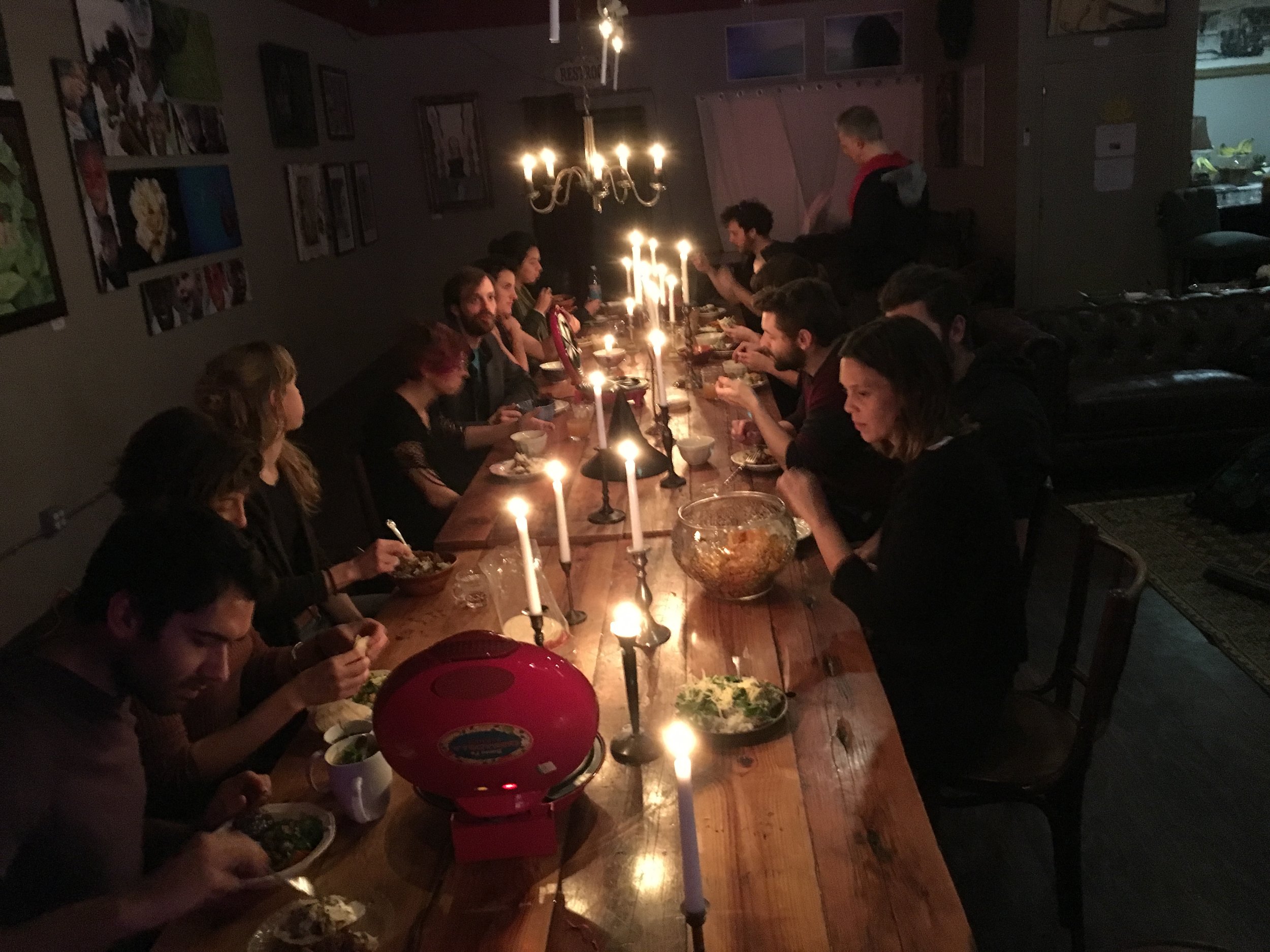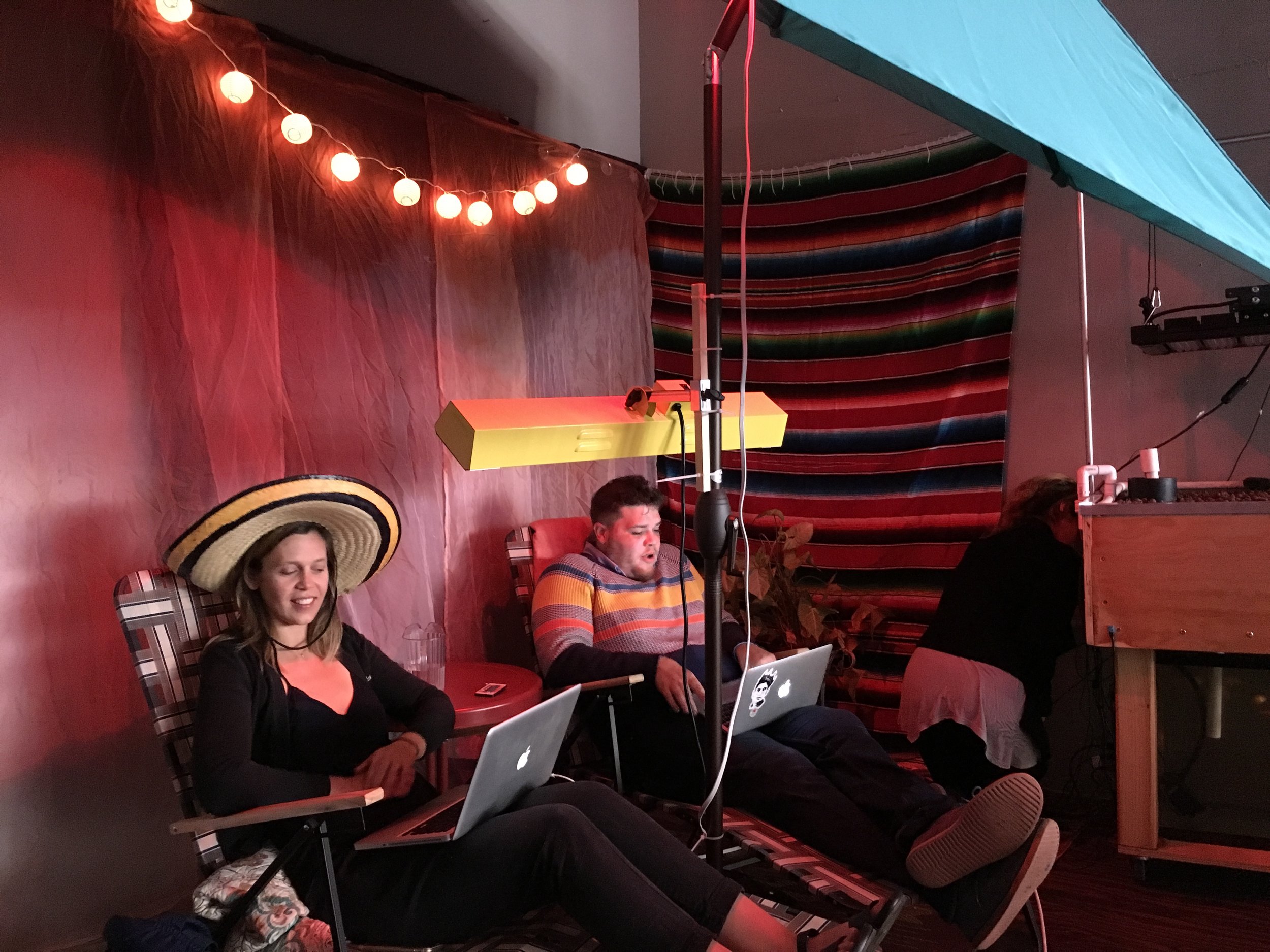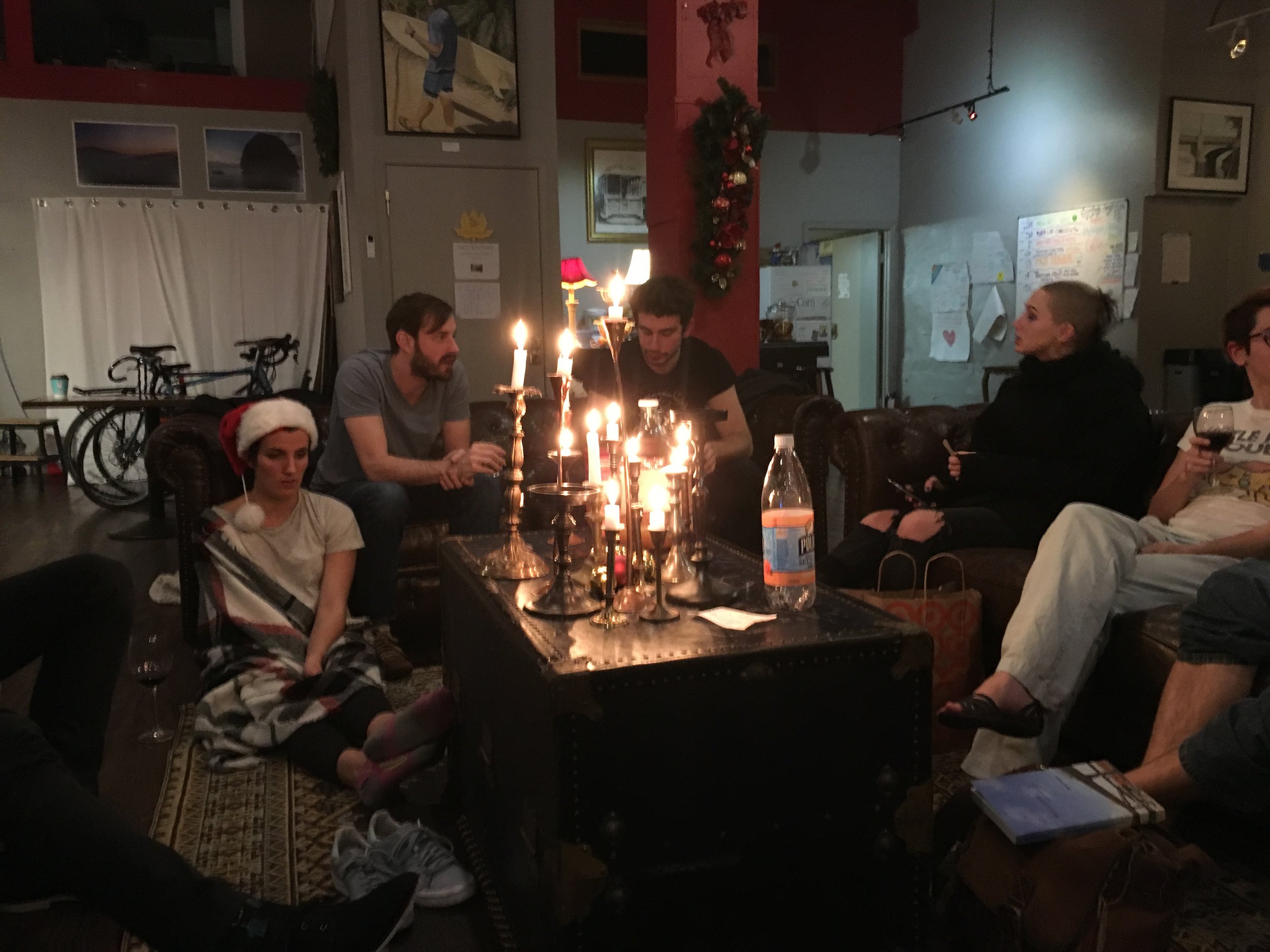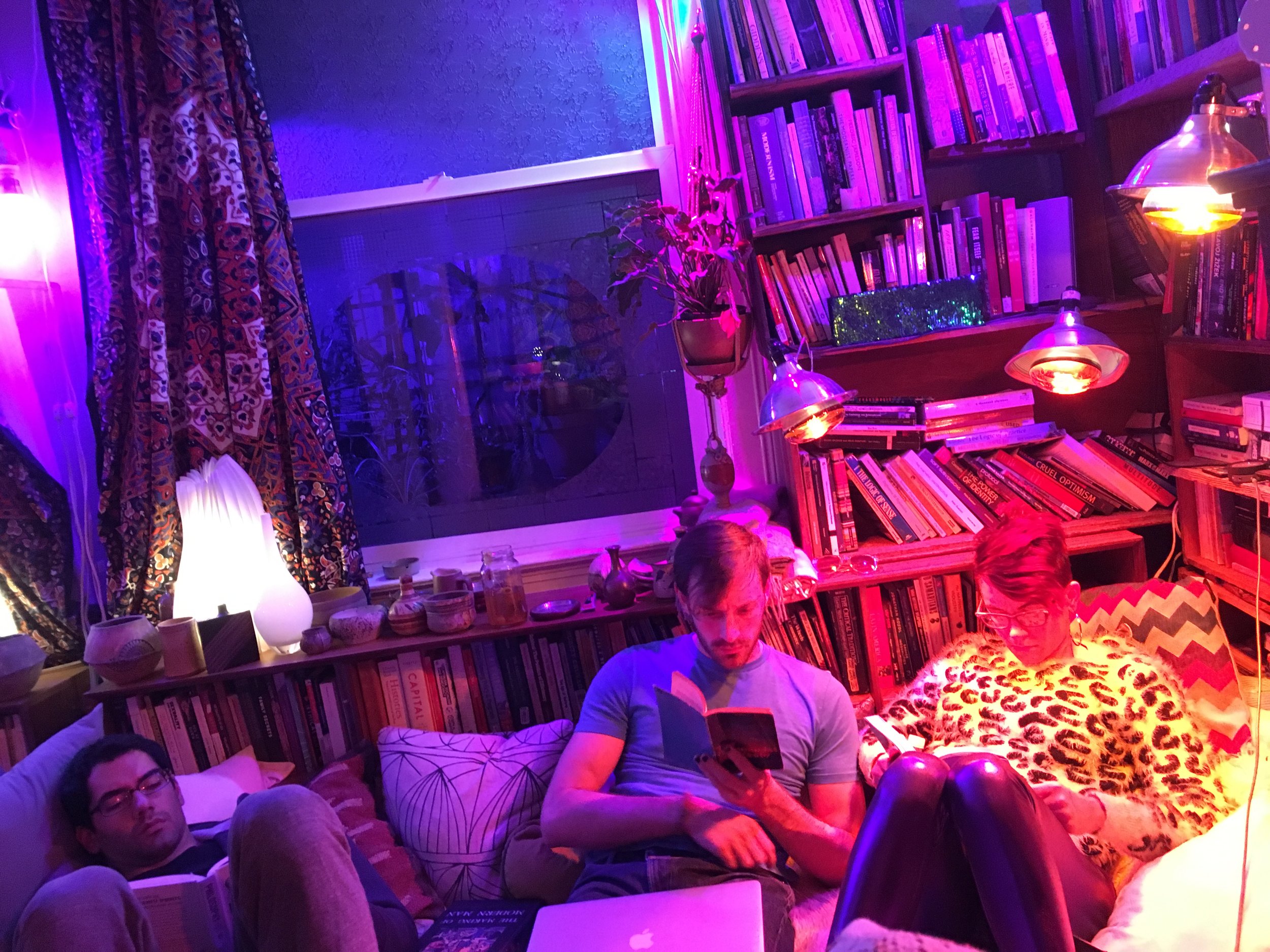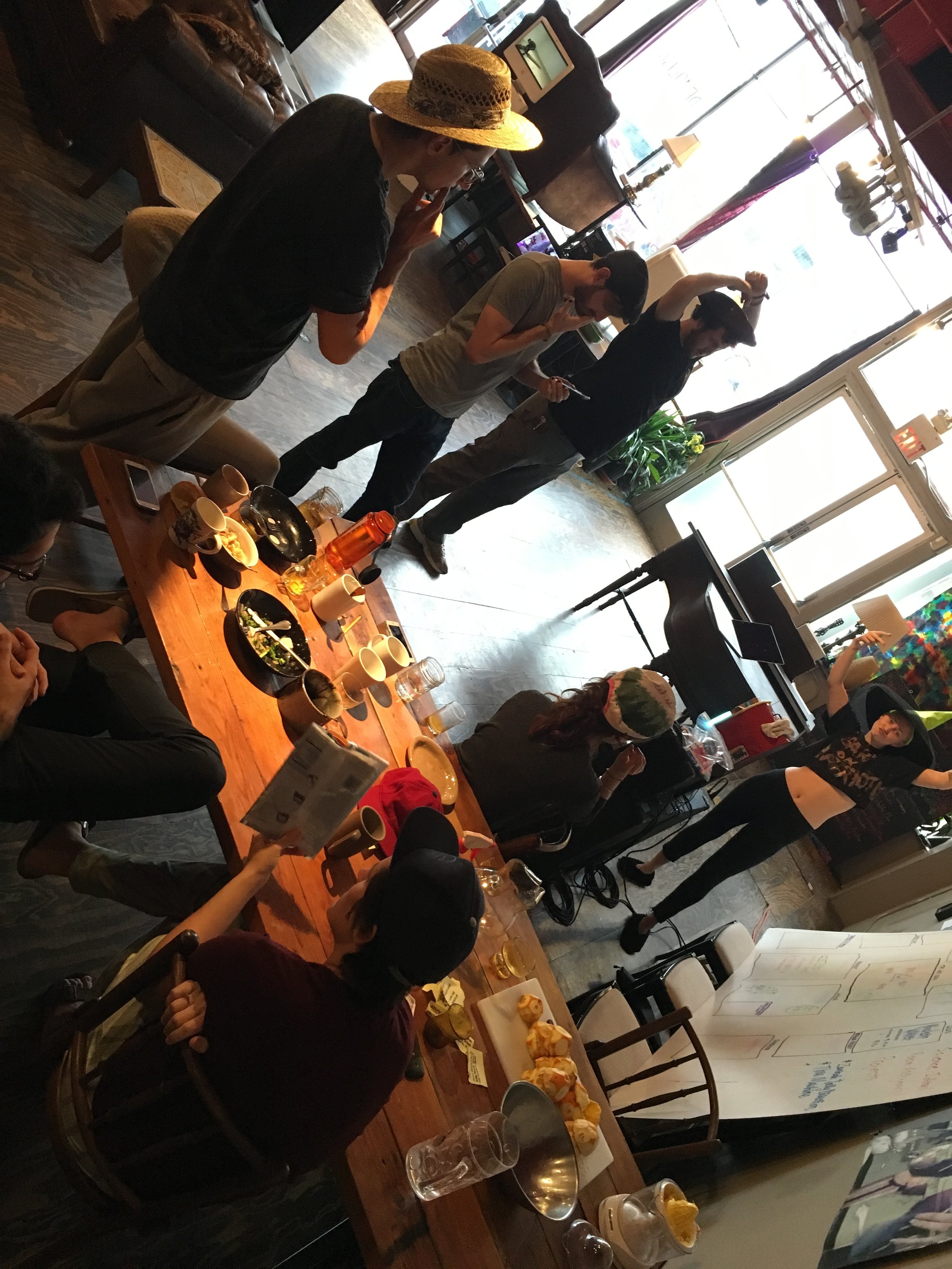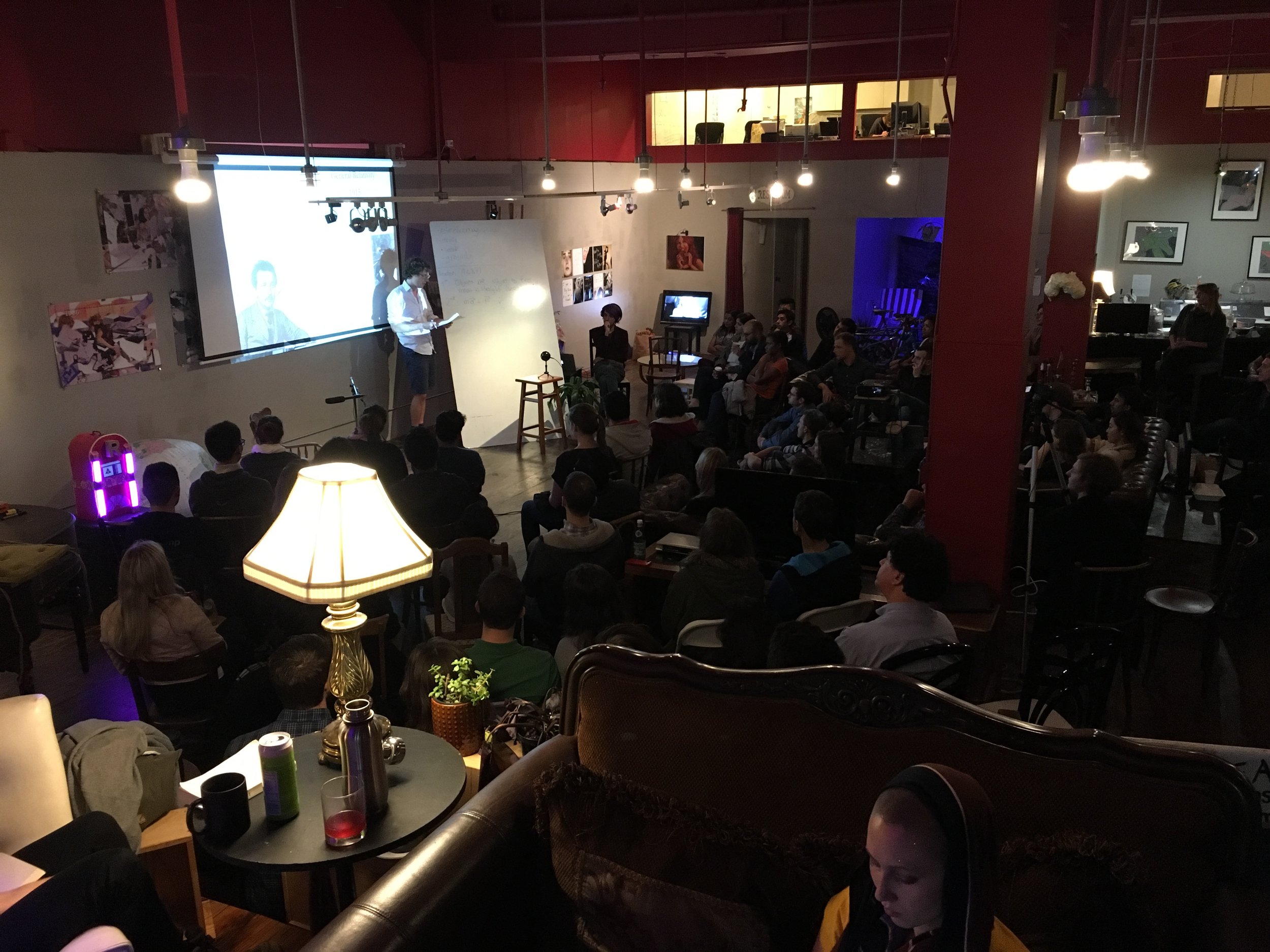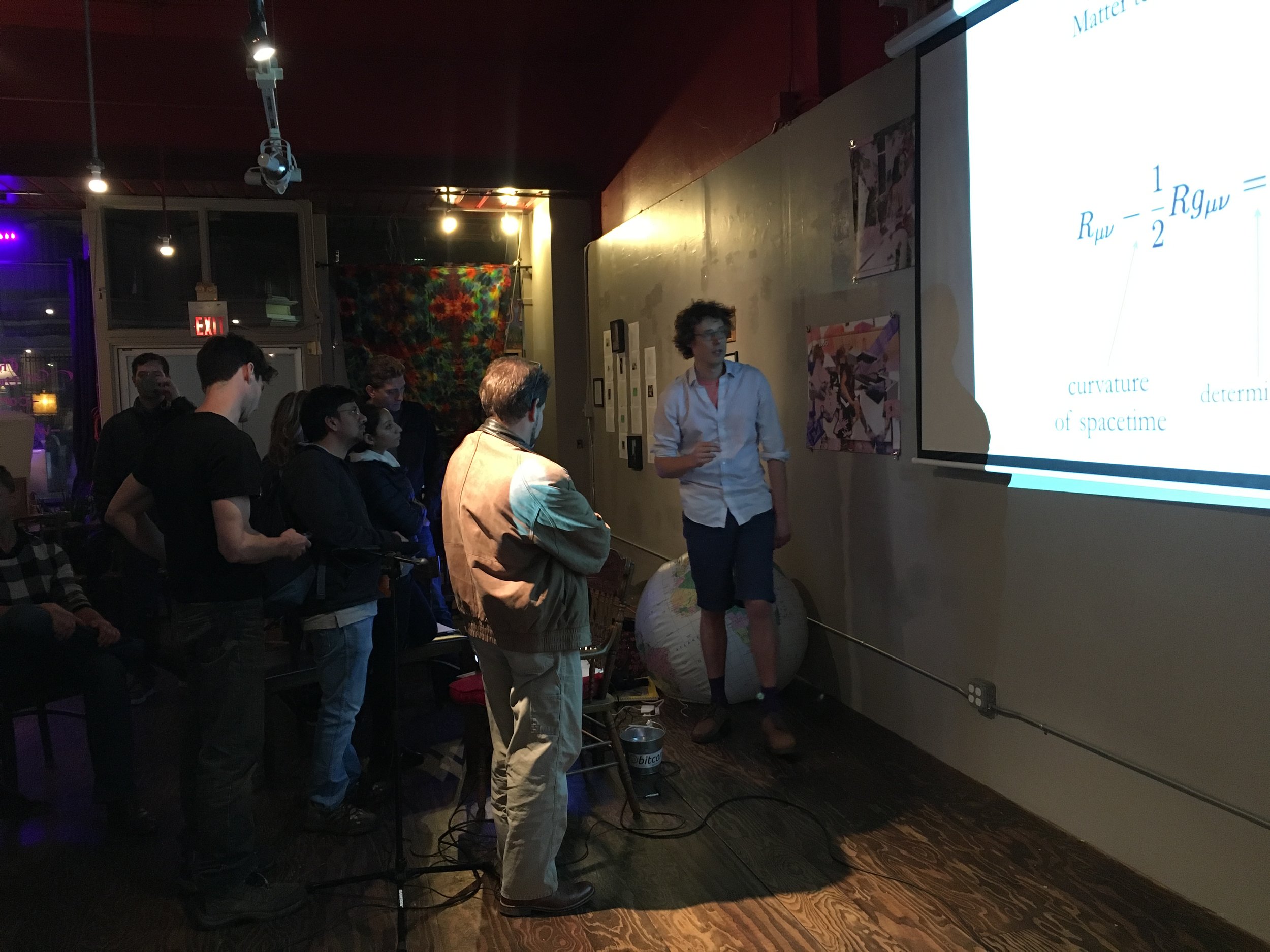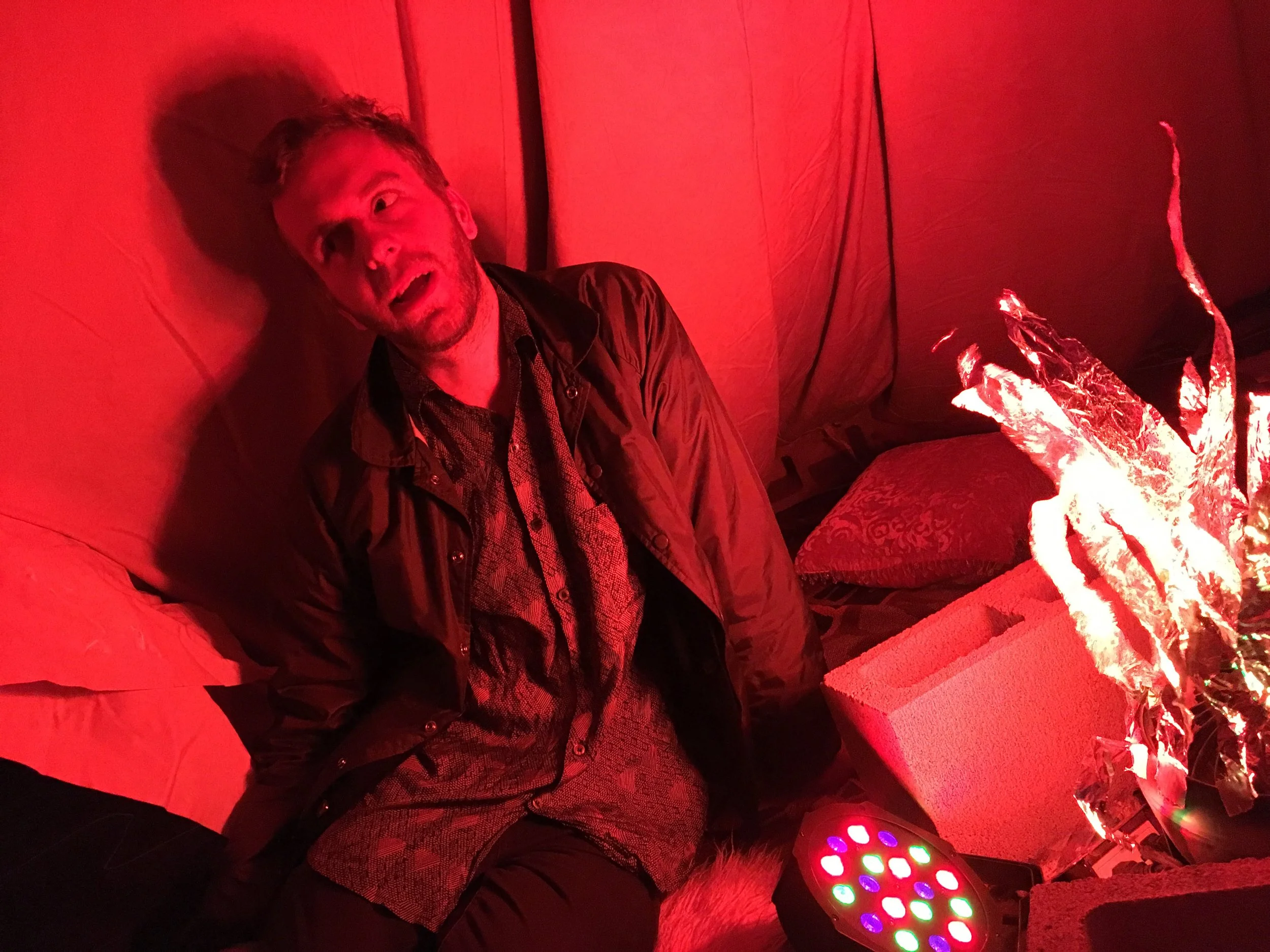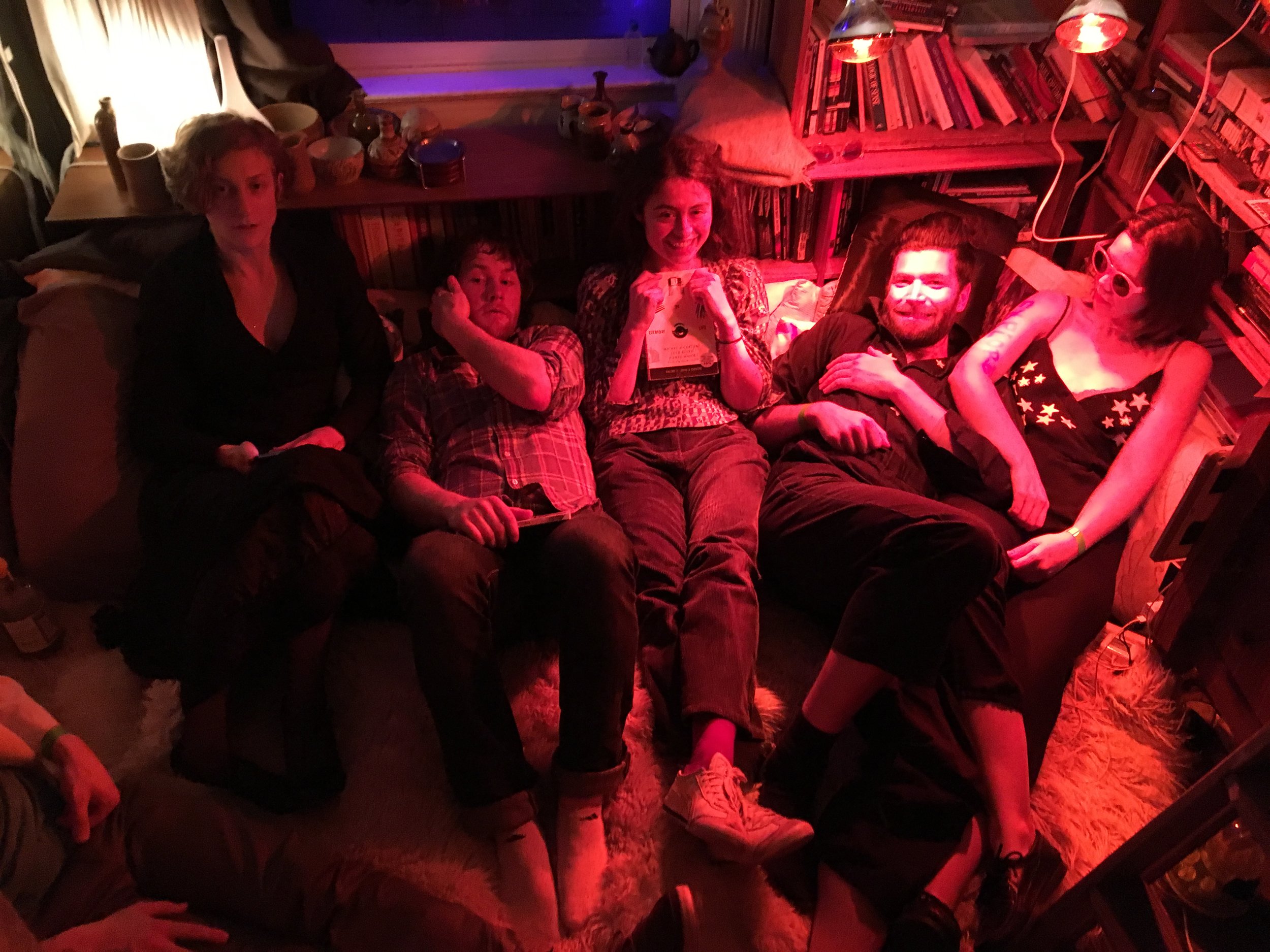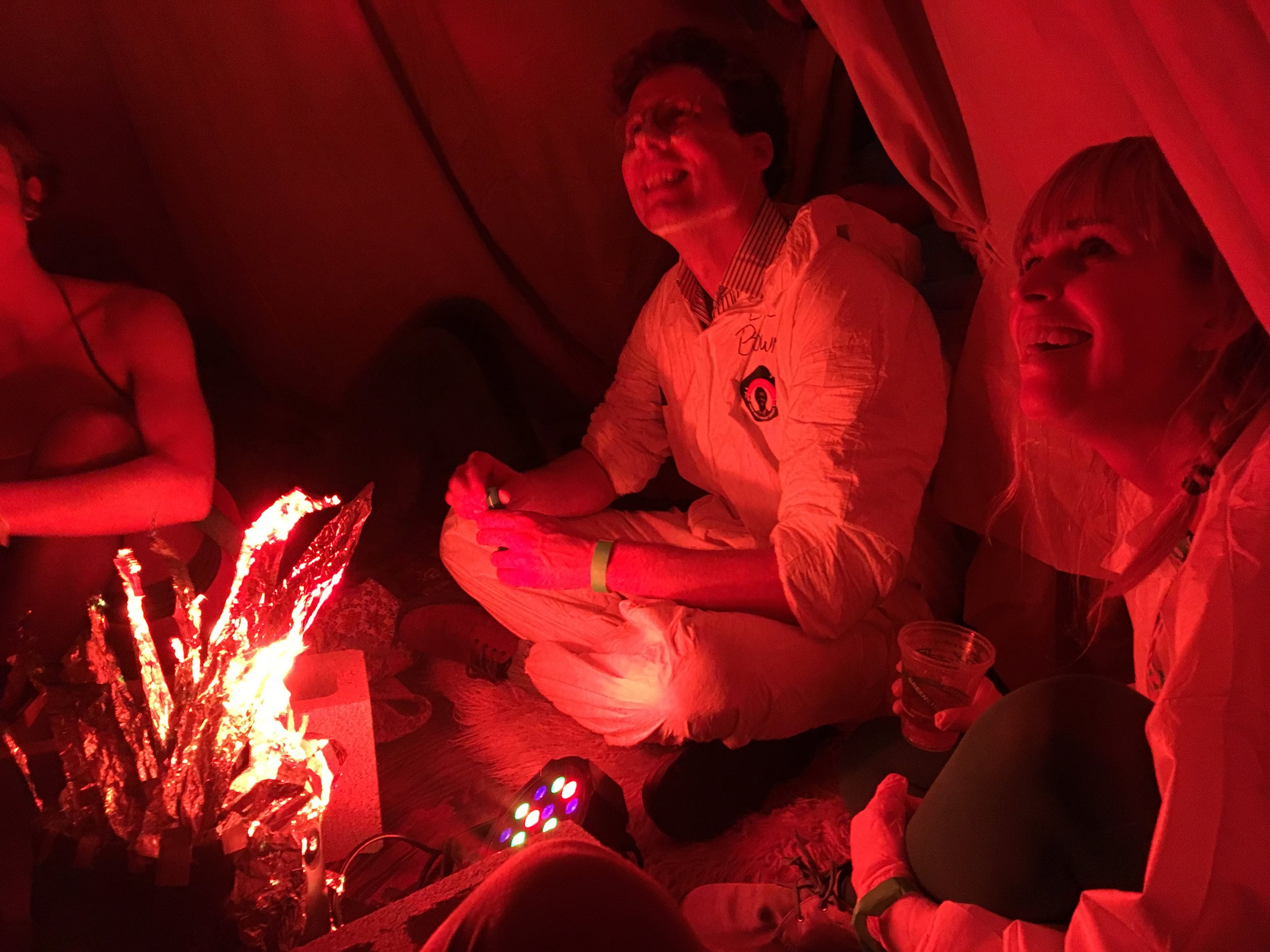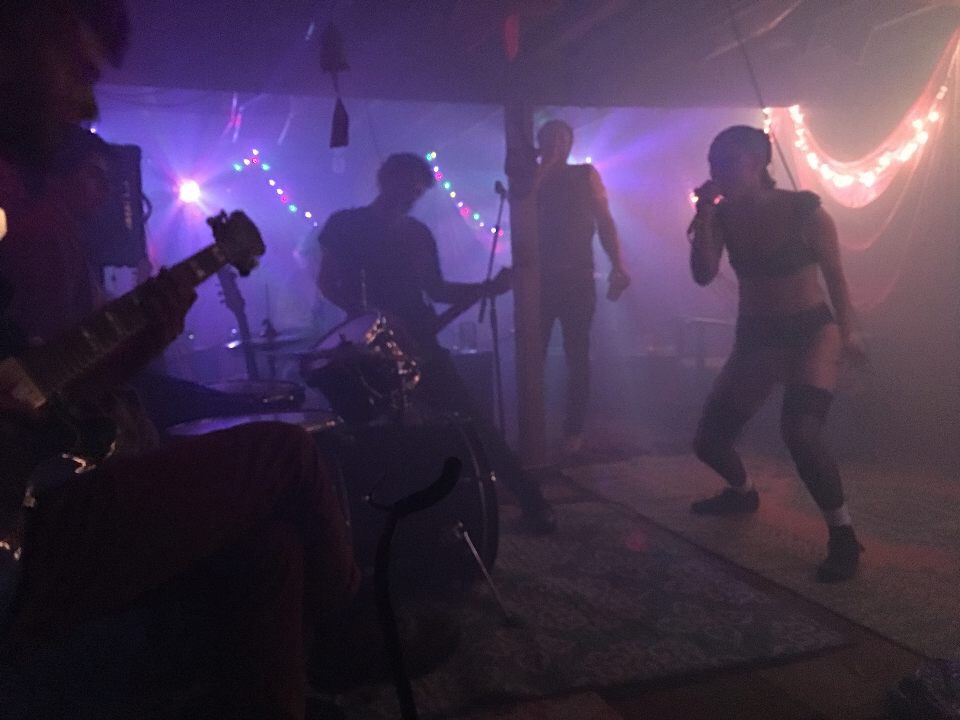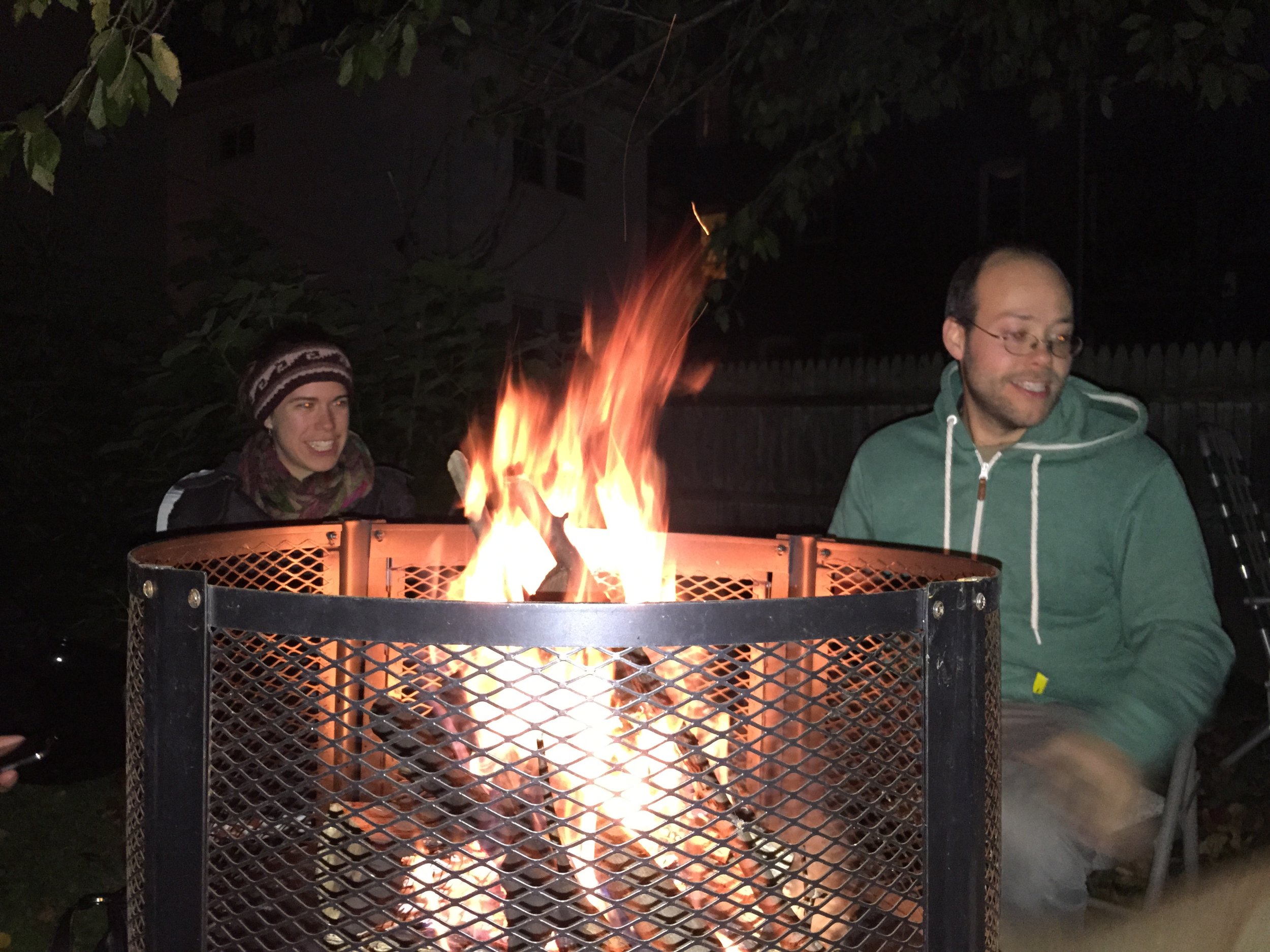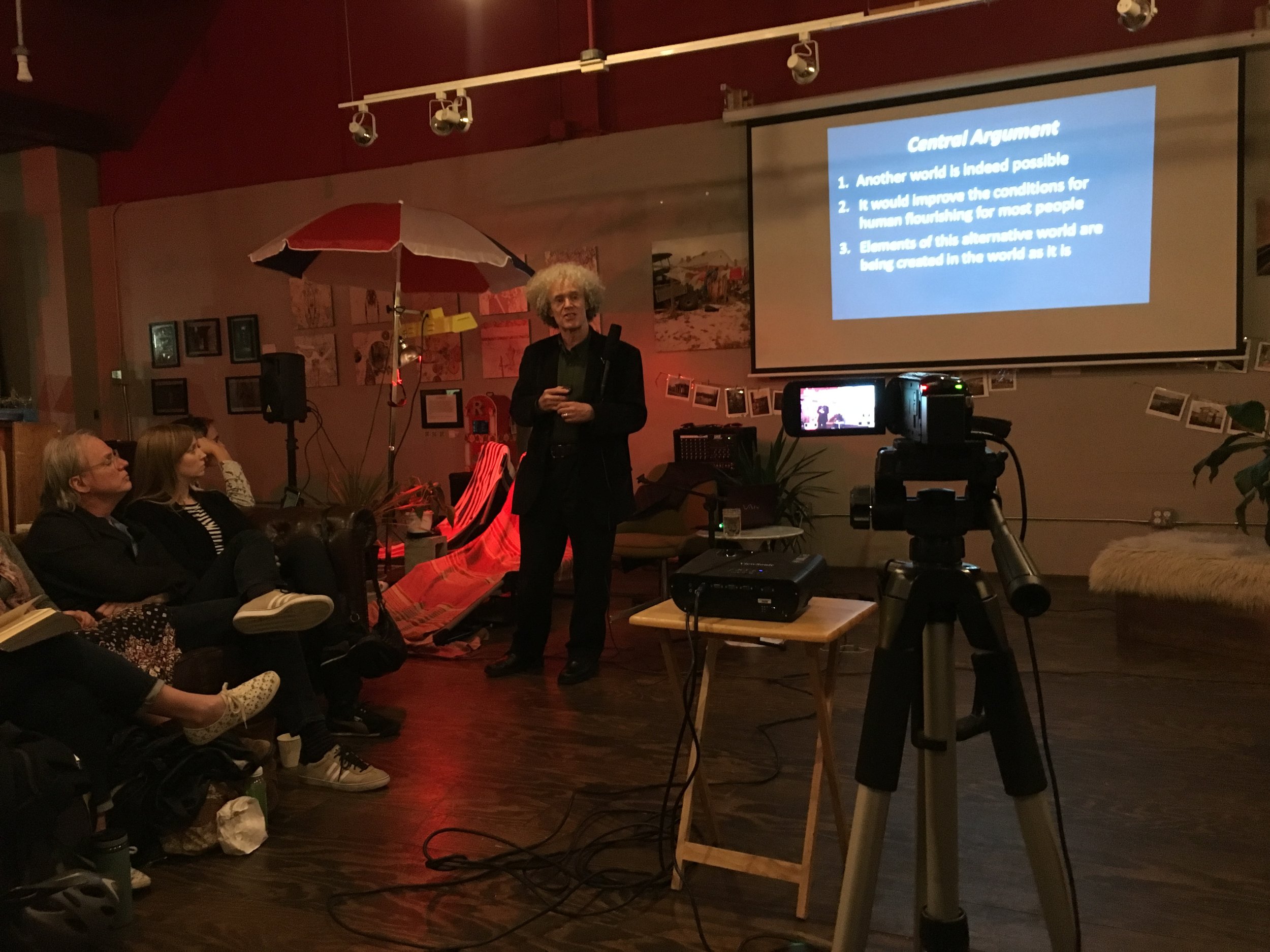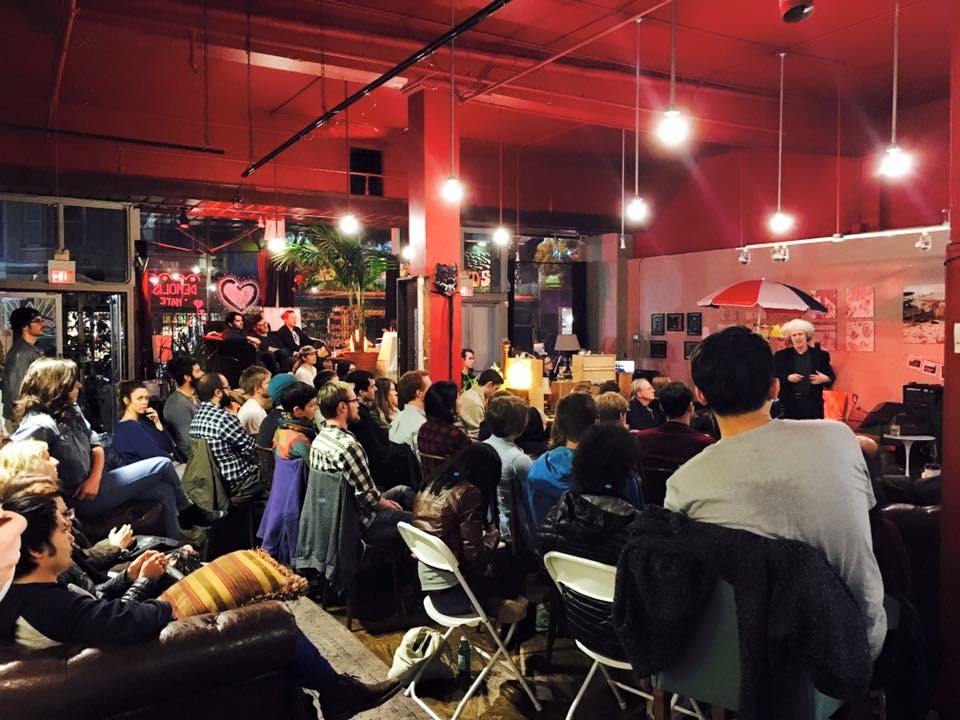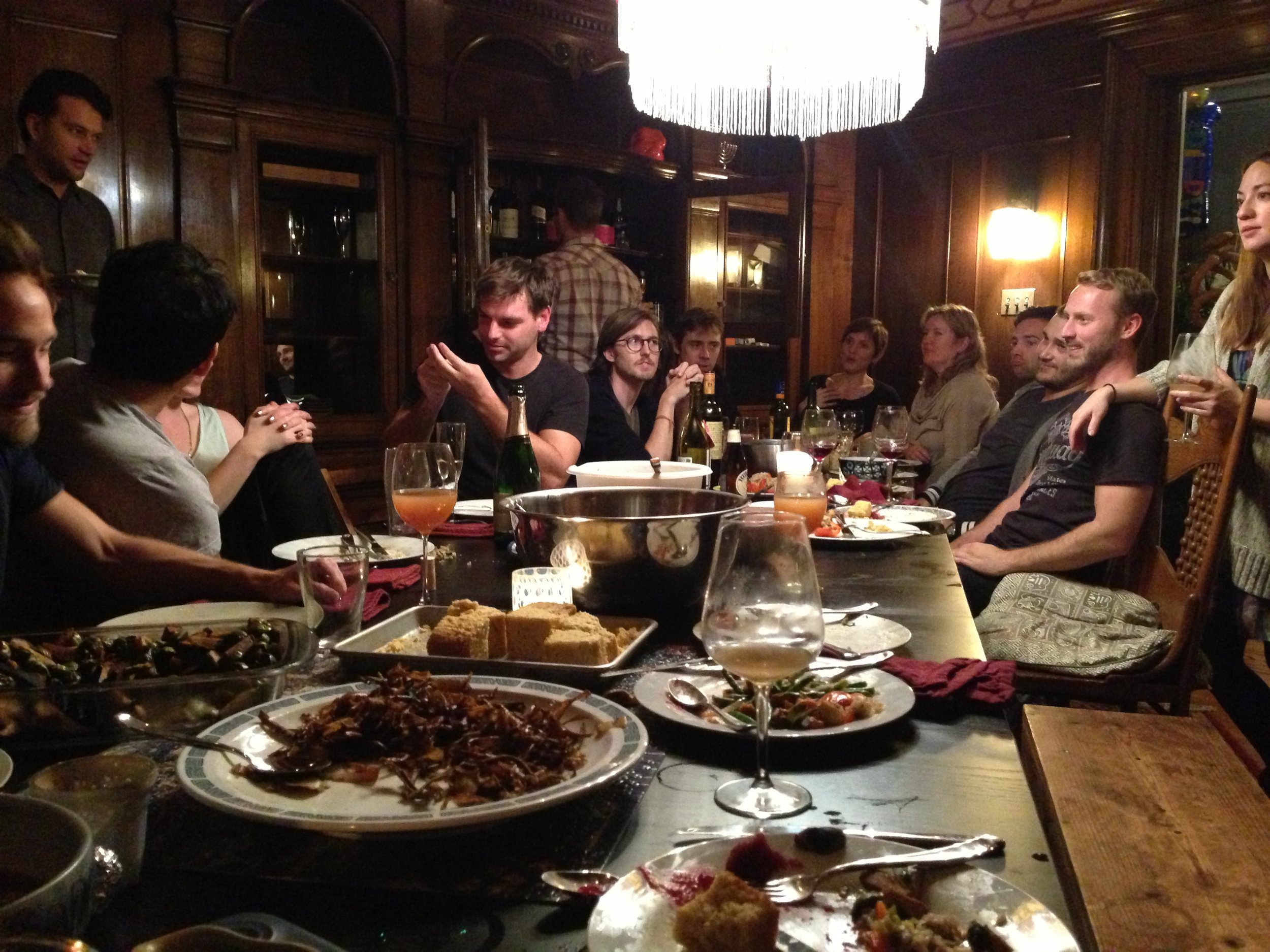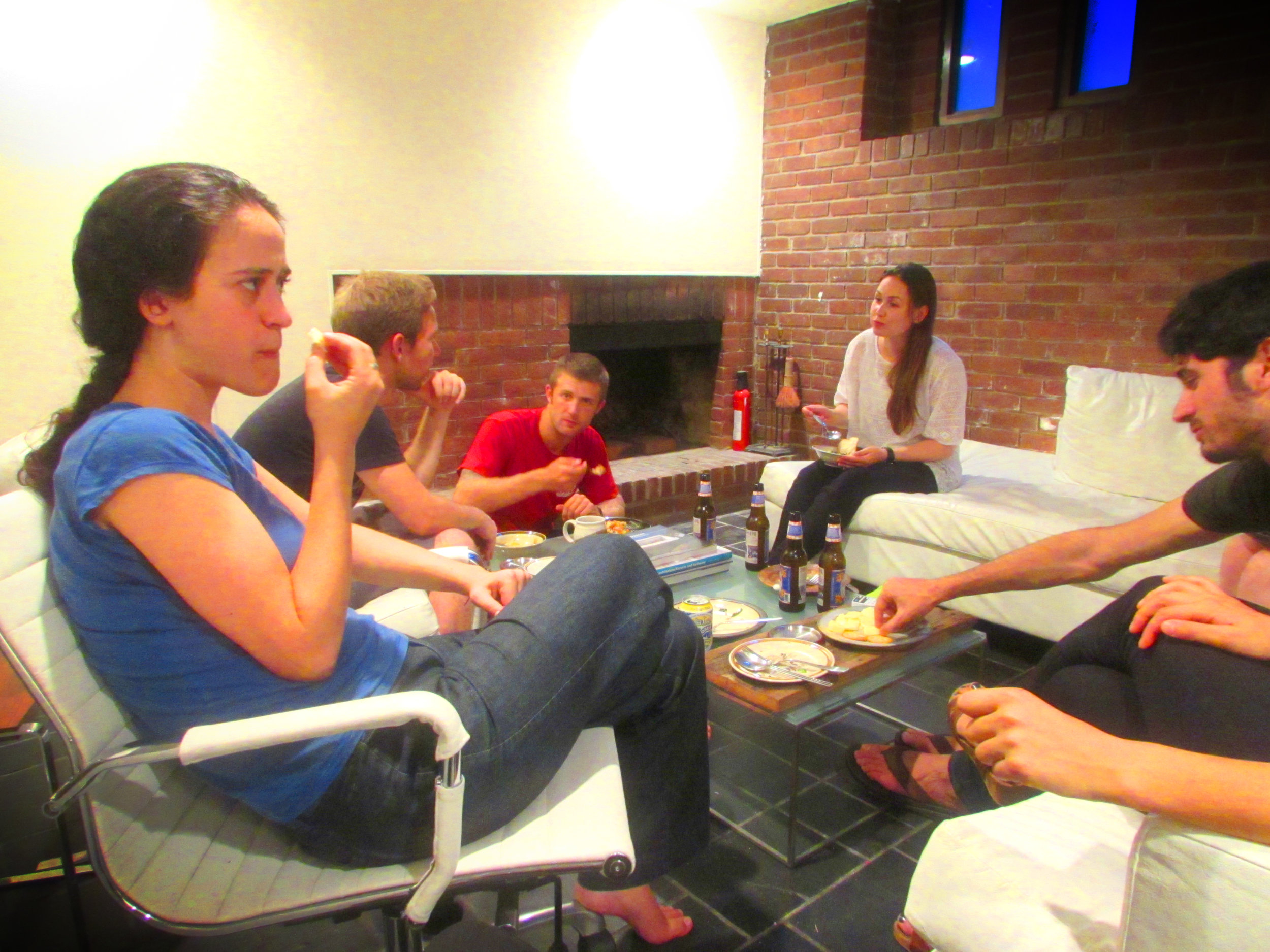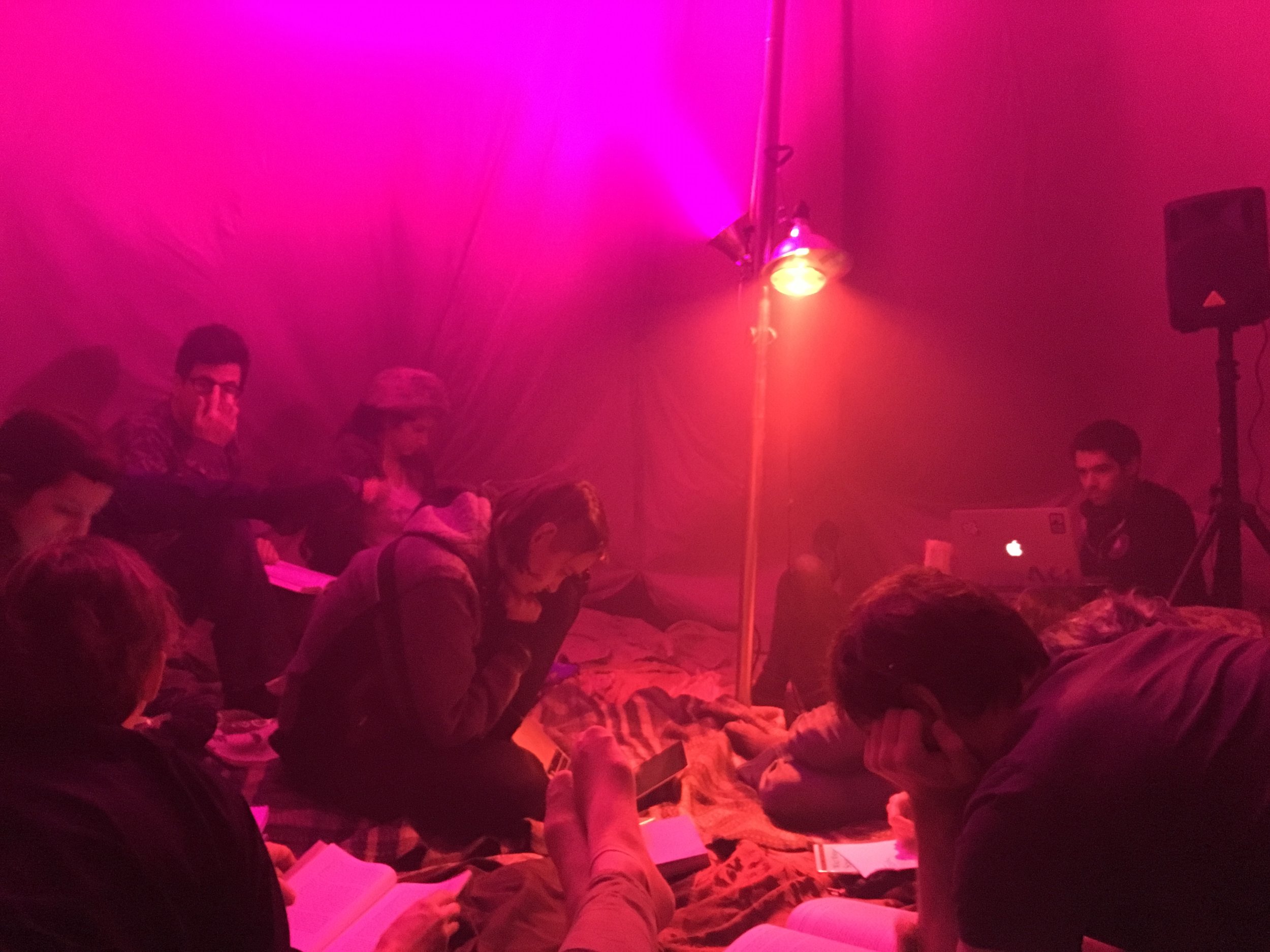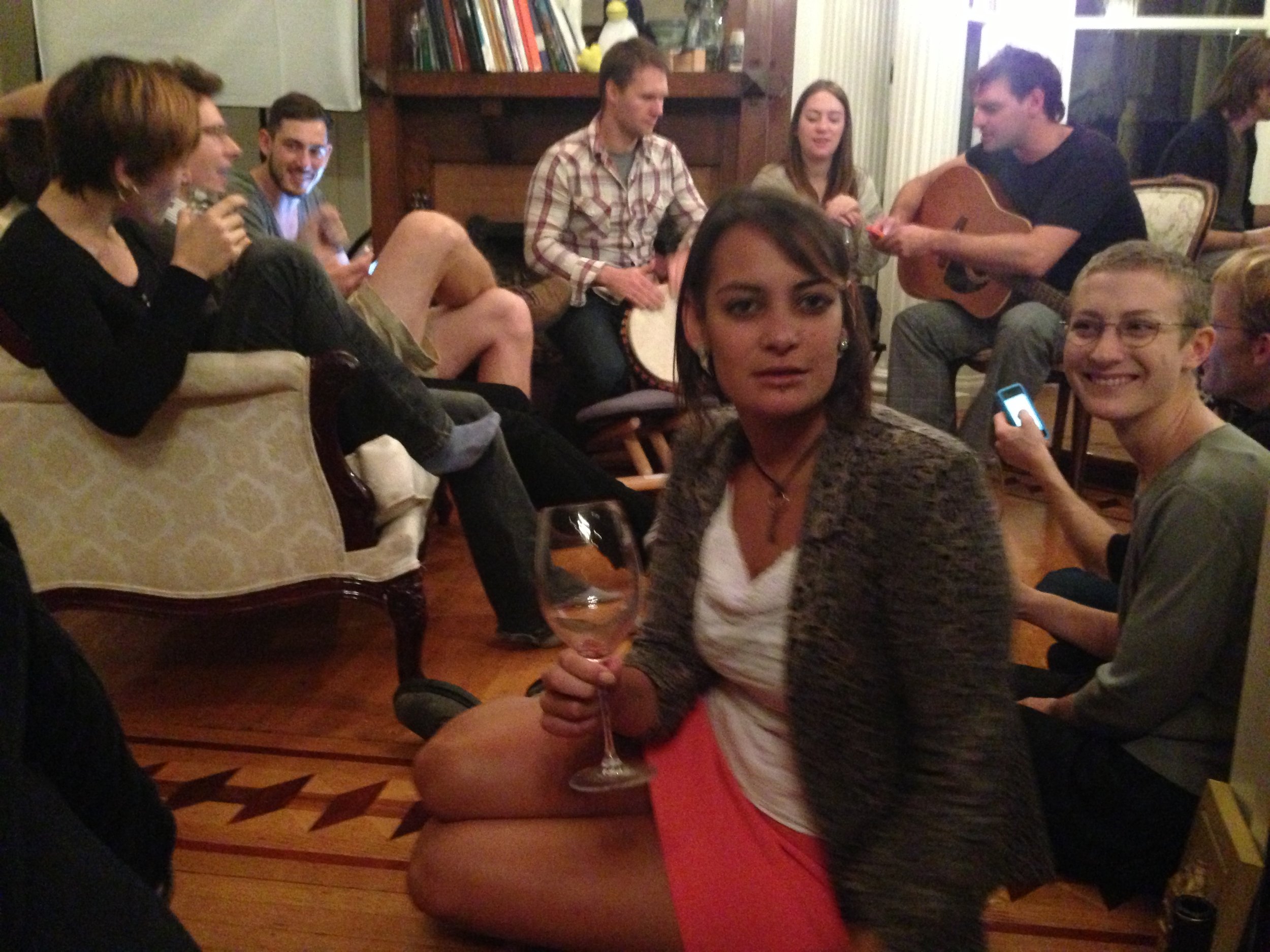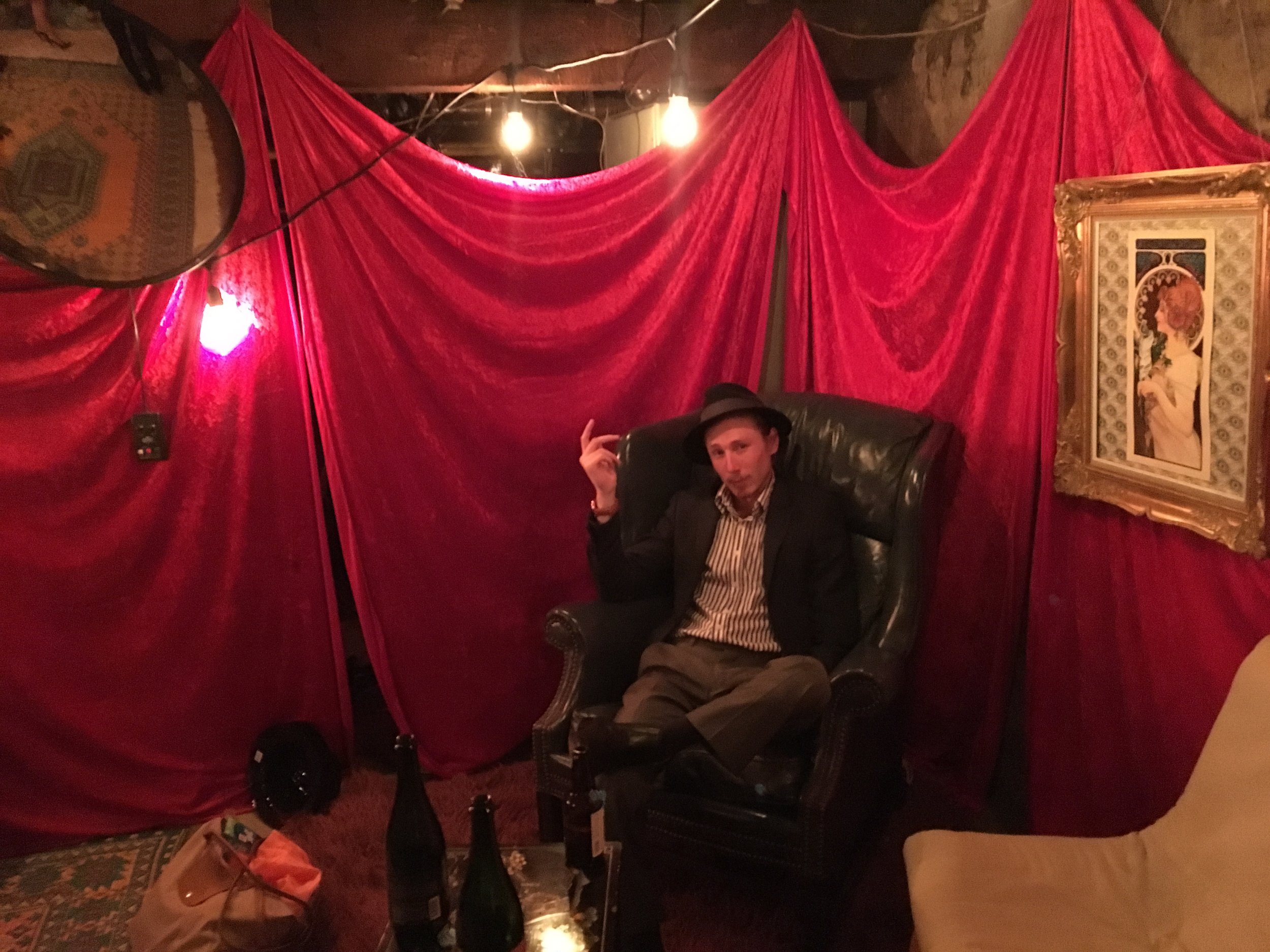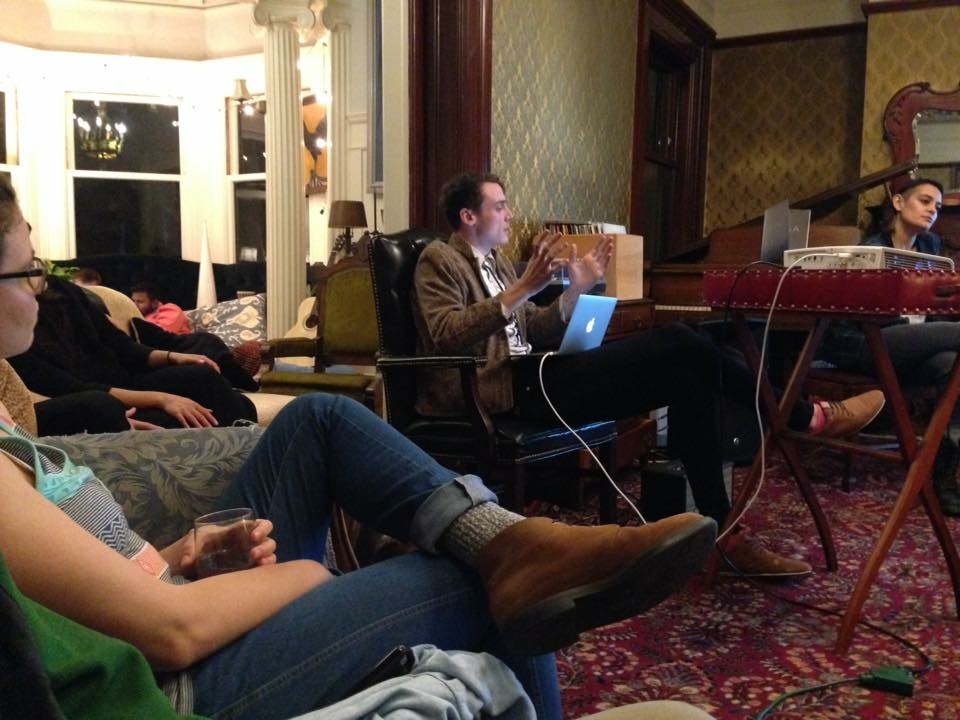Living communally brings people together in such a way that they pool their resources and time, and constitute a small economy that is partially dis-integrated from the market economy--something the family, in its various historical forms, has been doing for a long time, yet with its own shortcomings. Eric, interested in the possibilities of constituting commons as a way for society to gain economic resiliency and social fulfillment, lives in two Embassy Network communal houses in San Francisco, and has started a multi-unit commune in New Haven, CT, which continues to thrive in his absence. The long-term goal is to connect many of these large households in an archipelago of layered commons, so that sharing, benefiting from economies of scale, can replace certain aspects of personal consumption--and, by implication, waged work.
In order to bring the thinking and doing of commoning and communalism together, Eric co-found the Commune Research Commune with Zarinah Agnew and Andrew Herscher--a project that continues to evolve and grow.
In pursuit of a broader understanding of the historical precedents and economic/political/social/cultural implications of commoning and communal living in the twenty-first century, Eric attended Cambridge University on the Yale-Cambridge Bass Scholarship, which funded a one year research degree in Cambridge's School of Architecture. There, Eric pursued research along the following problematic:
At present, my interests center around how historically-varying power relations can be contested spatially through alternative, immanent uses of existing built space—the topic of a lecture series that I organized in the spring of 2016. Drawing on my previous research, as well as from poststructuralist philosophy and cultural studies, this work seeks to investigate how the ‘decoded’ uses of urban space may deviate from the ‘encoded’ intentions of the designers and planners (and their clients) of those spaces, and how strategic deviations—intentionally ‘reading’ the ‘active form’ of built environments, speculating about the intended behavioral effects that these are supposed to produce, and engaging in strategically-differing behavior—could open up a site for political agency in architecture, perhaps somewhat contra Manfredo Tafuri’s claim that global capitalism has left architecture bereft of such agency. In Architecture Depends, Jeremy Till argues that any account of the architecture of the city must take into consideration not only the contingency of architecture’s development, but also the contingency of how it is used. To begin with, many forces come together to act upon the architect and the design process in producing the work of architecture or the urban plan, etc., and then, when the process finally yields physical instances of the man-made environment, the spaces themselves often evade the intentions of the plan. The prospects for such ‘deterritorialized’ uses of space, I intend to argue, drawing from the work of Andrew Herscher, could allow for contingent programs, in which use value is able to emerge and operate independently of exchange value. Such differentiated, ‘deterritorialized’ uses of space are not always emancipatory, however. As tactical urbanism seems to suggest, the intentional ‘misuse’ of urban space can also be reformist and ameliorative by design, with the ultimate goal of refining systems of control along Foucauldian ‘governmental’ lines, or driving up real estate values in the surrounding areas. A whole slew of literature has recently emerged that attributes emancipatory value to governmental, ameliorative, integrative-developmentalist projects that incorporate bottom-up impulses within top-down strategies of order and economic development. Such projects, I claim, view liberalism as a radical alternative to neoliberalism, dwelling in an uncritical nostalgia for the welfare state, while ignoring the power relations inherent in statist and reformist projects. These complications of the value of ‘bottom-up’ spatial practices are also something I intend to explore in my research. Despite these complications, if immanent programs for existing built space were strategically designed and analytically-informed, they could work to integrate resources (including and especially human resources)—discarded and displaced by the turbulence of the production process—into new, commons-based, peer-production economies. This ‘counter-conversion’ (from capital into commons) would constitute a reversal of ‘primitive accumulation’—the backbone of capitalist reproduction—whose operation is one of enclosure of commons, and their conversion into capital.
As a specific site of study, I would like to examine the recent re-emergence of the commune, which increasingly is being problematized by scholars. The significance of these common dwellings is an important instance of ‘immanent urbanism,’ I argue, because they appear to emerge directly out of the twin crises of the decline of the nuclear family and the hyper-commodification of inner-city real estate, and adaptively use existing buildings and infrastructures to meet their un-encouraged, non-accommodated needs. These communes, as I can personally attest to, are also increasingly ‘self-problematizing’—effectively using critical pedagogy to analyze their position in the world, with respect to power and economy, and developing discourses about the meaning of what they are doing by living together. Organizing into multi-scalar networks and federations (ranging from local mutual aid and resource sharing platforms to global, distributed ‘households’), these molecular pieces of the domestic sphere are increasingly organizing into an institutional presence on a global scale. As these commoning practices attempt to self-consciously produce a self-valorizing ‘outside’ right in the heart of global cities, I’m interested in thinking about them through the lens of the peripheral and the marginal, and to work more generally with the periphery, considering the role that commons-based peer-production and self-valorization could have in spaces where exchange value is in crisis.
During Eric’s time in the Architecture and Urban Studies department at Cambridge, they wrote three essays (“Structural Split in the United States: Toward a Subaltern Theory of the West,” “Debating Universalization: Capitalist Integration and the Process of Primitive Accumulation,” and “Beyond Reform: Self-Valorization and the Crisis of Neoliberalism” ) framing the theoretical prospects for collective economies and new subjectivities of resistance under crumbling neoliberal conditions. Eric followed these theoretical essays up with a dissertation exploring the spatial politics of the London Gay Liberation Front (GLF) in the 1970s, examining why the GLF’s politics led them to found and dwell in communes, and, ultimately, why these communes failed.
Eric continues to advise participant-leaders in the San Francisco communes, principally on postcapitalist strategy and on how to develop their institutional influence.

